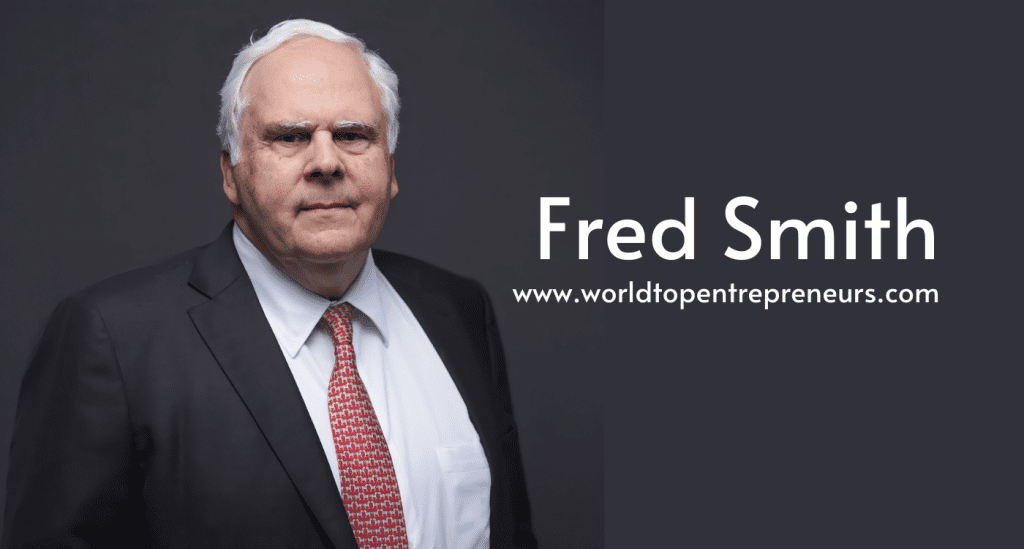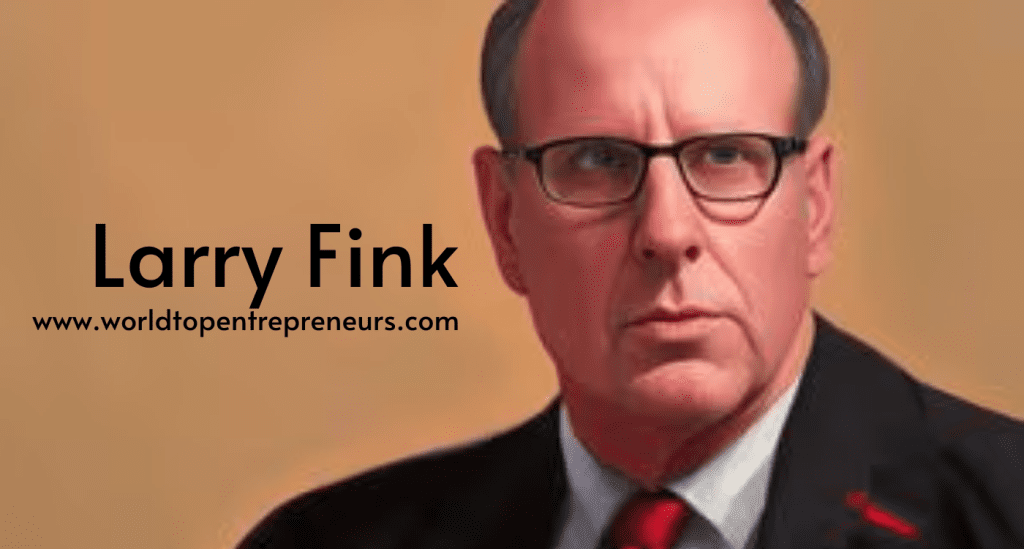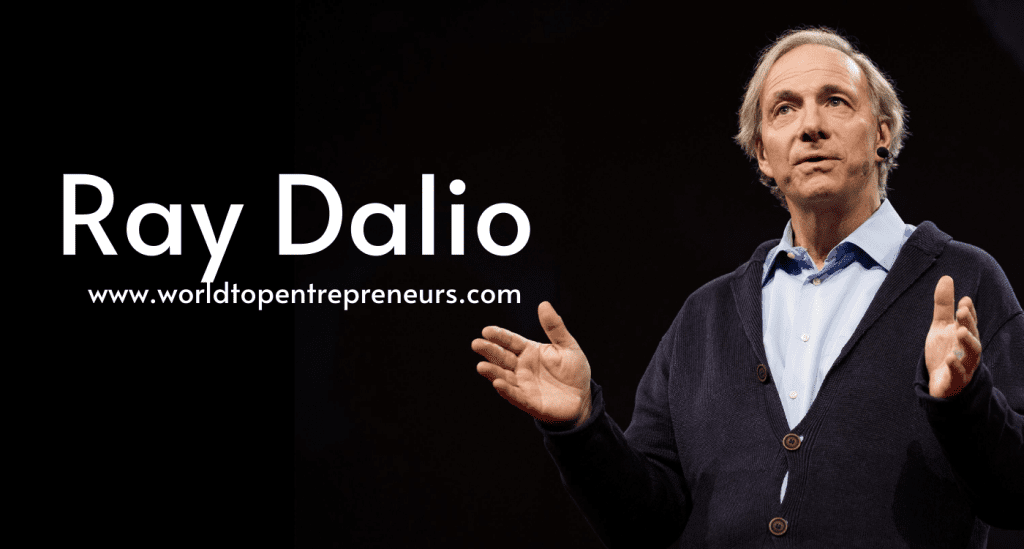In the bustling world of global commerce, few names resonate as profoundly as Fred Smith, the visionary founder of FedEx. His journey from a determined young entrepreneur to the architect of one of the world’s most iconic logistics companies is a testament to perseverance, innovation, and the relentless pursuit of a vision.
Early Life and Influences
Fred Smith was born on August 11, 1944, in Marks, Mississippi, a small town deeply rooted in the agricultural landscape of the American South. His upbringing in a family with a strong entrepreneurial spirit would significantly shape his future endeavors. His father, Fred Smith Sr., owned a successful farm equipment company, instilling in young Fred a keen understanding of business principles and the value of hard work.
Smith’s educational path was equally formative. After attending Memphis University School, he enrolled at Yale University in 1962. At Yale, Smith’s interests spanned economics, aviation, and military history—interests that would converge later in his career. He showed early signs of leadership and innovation, characteristics that would define his entrepreneurial journey.
The Birth of an Idea
The seeds of what would become FedEx were sown during Fred Smith’s time at Yale. His undergraduate thesis explored the challenges of overnight delivery in a modernizing world—a topic that seemed esoteric at the time but laid the groundwork for a revolutionary business concept. Smith envisioned a company that could deliver packages overnight, bypassing traditional methods and leveraging airfreight to expedite delivery times.
Challenges and Setbacks
Like many pioneers, Smith faced numerous obstacles in bringing his vision to life. After graduating from Yale in 1966, he joined the Marine Corps, where he served two tours of duty in Vietnam. His experiences in the military reinforced his strategic thinking and logistical acumen, but upon his return to civilian life, he encountered the harsh realities of entrepreneurialism.
In 1971, Smith launched Federal Express Corporation with a bold plan: to offer overnight delivery services across the United States. However, the early years were fraught with financial difficulties. The company hemorrhaged money, struggling to keep up with operational costs and regulatory challenges. At one point, FedEx was on the brink of bankruptcy, a situation that forced Smith to take desperate measures.
Turning Point: The ZapMail Innovation
Amidst the financial turmoil of the mid-1970s, Fred Smith faced a critical juncture that would define FedEx’s future. Confronted with mounting debts and operational inefficiencies, Smith made a pivotal decision to diversify FedEx’s offerings. In 1983, FedEx introduced ZapMail—a facsimile transmission service aimed at revolutionizing business communications. Despite initial optimism, ZapMail failed to gain traction in the market, costing the company hundreds of millions of dollars.
The failure of ZapMail was a humbling experience for Smith, but it underscored his willingness to take risks and innovate—a trait that would prove crucial in shaping FedEx’s eventual success.
The Rise to Prominence
FedEx’s fortunes began to change in the late 1970s and early 1980s, fueled by strategic investments in infrastructure and technology. Smith’s vision of an integrated air and ground network started to take shape, laying the foundation for FedEx’s rapid expansion and operational efficiency. By the mid-1980s, FedEx had emerged as a dominant force in the logistics industry, synonymous with reliability, speed, and innovation.
Key to FedEx’s success was Smith’s unwavering commitment to customer satisfaction and operational excellence. He fostered a corporate culture that prioritized employee empowerment and technological advancement, setting new benchmarks for service quality in the logistics sector.
Innovation and Technological Advancements
Under Smith’s leadership, FedEx became a trailblazer in adopting cutting-edge technologies to enhance its operational capabilities. The introduction of the COSMOS (Customer, Operations, and Services Master Online System) in 1979 revolutionized package tracking and logistics management, providing customers with real-time information and improving overall efficiency.
Smith’s forward-thinking approach also led to significant investments in aircraft and vehicle fleets, infrastructure development, and the deployment of advanced sorting and processing technologies. These innovations not only differentiated FedEx from its competitors but also set industry standards for logistical efficiency and customer service.
Cultural Impact and Corporate Philosophy
Beyond its operational success, FedEx under Fred Smith’s stewardship became a cultural icon, symbolizing the power of innovation and the spirit of American entrepreneurship. Smith’s emphasis on ethical business practices, environmental stewardship, and community engagement shaped FedEx’s corporate identity and earned the company a reputation for corporate responsibility.
FedEx’s commitment to diversity and inclusion also reflected Smith’s progressive values. Under his leadership, the company actively promoted diversity in its workforce and leadership ranks, recognizing the inherent value of a diverse and inclusive organizational culture.
Philanthropy and Legacy
Fred Smith’s influence extends beyond the boardroom. Throughout his career, he has been a staunch advocate for philanthropy and social causes, supporting initiatives in education, healthcare, and community development. The FedEx Cares program, launched under Smith’s leadership, exemplifies the company’s commitment to giving back and making a positive impact on society.
As Fred Smith approaches his sixth decade at the helm of FedEx, his legacy as a visionary leader and innovator is secure. His journey from a determined young entrepreneur with a revolutionary idea to the architect of a global logistics powerhouse is a testament to the power of perseverance, innovation, and unwavering commitment to a vision.
Conclusion
In conclusion, Fred Smith’s story is not just one of entrepreneurial success but of resilience in the face of adversity and unwavering determination to transform an industry. His ability to see beyond the status quo, coupled with a relentless pursuit of excellence, has cemented his place in history as a pioneer of modern logistics and a role model for aspiring entrepreneurs worldwide.
Fred Smith’s journey with FedEx is a testament to the transformative power of visionary leadership and the enduring impact of innovation on global commerce. As FedEx continues to evolve in an increasingly interconnected world, Fred Smith’s legacy will continue to inspire future generations of leaders to dream big, take risks, and challenge the limits of what is possible in business and beyond.





















